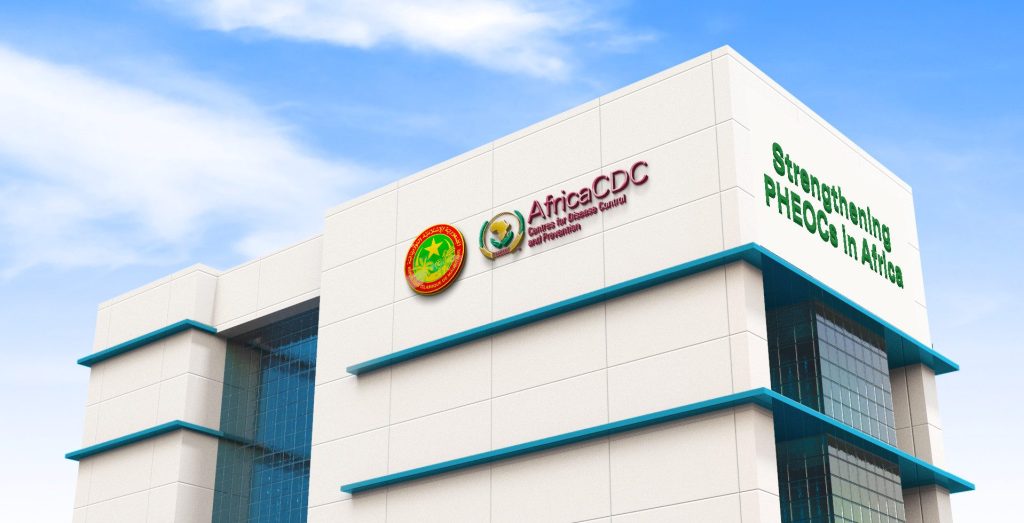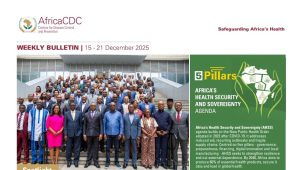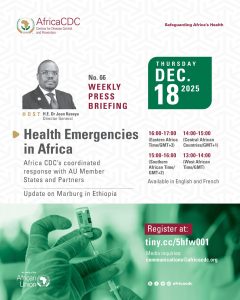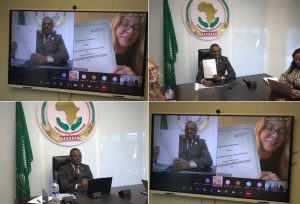Mauritania Public Health Emergency Operations Centre (PHEOC) is now better positioned to activate and manage Incident Management System (IMS) for real-world outbreaks,but more skills training in required to further empower the team to respond to threats, a recent training workshop revealed.
“The PHEOC and IMS workshop in Mauritania was a success,” said Dr Ahmed Tijani Abubakar, Emergency Preparedness and Response focal point and African Volunteers Health Corps, activities coordinator for the Northern Africa Regional Coordinating Centre who represented the Northern RCC Director Dr Wessam Mankoula. “We noted significant progress about 83.36% of the post-test questions got more good answers compared to the pre-test.”
The Africa CDC, in collaboration with the Northern RCC, conducted a five-day training workshop on the Public Health Emergency Operations Centre and Incident Management System from 5 to 9 May 2025 in Nouakchott, Mauritania. The training was officiated by the Secretary General of the Ministry of Health, Mme El Alia Mint Menkoussenior, while WHO Country Rep Mme Ndiaye Fati gave her remarks.
The workshop aimed to strengthen the capacity of Mauritania’s PHEOC staff in public health emergency management, focusing on IMS principles, PHEOC operations, and emergency response frameworks.
A total of 28 participants and 7 facilitators took part in this workshop which provided both theoretical and practical understanding of the IMS framework, including the establishment and management of Emergency Operations Centers in which WHO country team supported.
Dr Tijani said the participants are from diverse technical team comprising of logistics officers, administrative officers, information technology experts and military personnel were exposed to the principles of public health emergency management, acquired knowledge on fundamentals of the Incident Management System, gained in-depth knowledge of the functions, operations and management of a PHEOC and learnt basic knowledge of public health emergency management planning including the PHEOC manual, plans and standard operating procedures.
“The post-assessment results demonstrate significant improvements in participants’ knowledge, skills, and operational readiness. There is strong evidence of improved understanding of the IMS operational cycle, which is critical for managing public health emergencies efficiently,” he said.
Dr Tijani, however, said, there is need for a more focused training for the PHEOC staff to further equip them with practical knowledge and tools to lead coordinated responses during health emergencies. The participants were encouraged to finalise handbook for public health emergency, to build contingency plan and to finalise legal framework for multisectoral coordination. As part of the mission to Mauritania, team visited the EOC to physically assess the Africa CDC equipment as well as the physical structure to host the equipment. While the equipment is well stored, there is still a need to re-assess the physical structure for standardisation.







